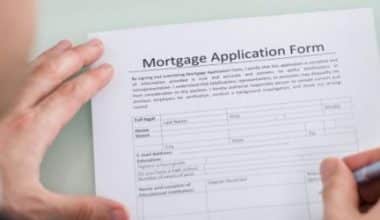If you’re a homeowner looking to make the most of your investment, consider exploring the option of refinancing your house. Refinancing your house loan can offer numerous advantages, including potentially lower interest rates and improved loan terms. By refinancing, you can replace your existing mortgage with a new one that better aligns with your financial goals and current market conditions. Wondering why you should refinance your house? Well, it allows you to potentially save money over time, consolidate debt, access equity, or even shorten the loan term. So, how exactly can you refinance your house? It involves applying for a new mortgage loan and going through the approval process, just like when you initially purchased your home. By understanding the ins and outs of refinancing, you can make an informed decision that suits your specific needs and helps you achieve your financial objectives.
Refinance House
Refinancing a house involves replacing your current mortgage with a new one, typically with improved terms and conditions. The primary goal of refinancing is to save money by taking advantage of lower interest rates or reducing the loan term. It can also provide an opportunity to access the equity built into your home for various purposes, such as home renovations or debt consolidation. Refinancing may involve adjusting the loan term, switching from an adjustable-rate mortgage to a fixed-rate mortgage, or vice versa. Additionally, refinancing allows borrowers to modify their monthly mortgage payments to better align with their financial situation. It is important to carefully evaluate the costs, benefits, and potential impact on your long-term financial goals before deciding to refinance your house.
Refinance House Loan
A refinance house loan refers to a new loan taken out to replace an existing mortgage on a property. By refinancing, borrowers aim to secure more favorable terms, such as lower interest rates or extended repayment periods. The process involves applying for a new loan, undergoing a credit check, and assessing the property’s current value. Refinancing can help homeowners save money on monthly payments or access additional funds for other financial needs. It is essential to carefully consider the costs, fees, and potential impact on long-term financial goals before pursuing a refinance house loan.
Refinance House Rates
Refinance house rates refer to the interest rates associated with refinancing a mortgage. These rates can vary depending on market conditions, the borrower’s creditworthiness, and the loan terms. Lenders offer different rates for refinancing options, and it’s crucial for borrowers to shop around and compare rates from multiple lenders to secure the best deal. Lower refinance house rates can result in reduced monthly payments and overall interest costs over the life of the loan. It’s important to consider the potential savings, closing costs, and any prepayment penalties associated with refinancing when evaluating the impact of refinancing house rates on your financial situation.
Why Refinance House
There are several reasons why homeowners choose to refinance their houses. Firstly, refinancing can help secure a lower interest rate, resulting in reduced monthly mortgage payments. Additionally, refinancing allows borrowers to access their home’s equity for other financial needs, such as home improvements or debt consolidation. Refinancing can also be a strategic move to switch from an adjustable-rate mortgage (ARM) to a fixed-rate mortgage, providing stability and predictability in monthly payments.
Furthermore, refinancing offers the opportunity to shorten the loan term, enabling homeowners to pay off their mortgage sooner and save on interest costs over time. Ultimately, the decision to refinance a house should be based on individual financial goals and circumstances, taking into account factors such as interest rates, loan terms, and potential cost savings.
How to Refinance a House
The process of refinancing a house involves several steps. Firstly, evaluate your financial situation and goals. Then, research and compare lenders to find the best refinance options. Next, gather the necessary documents and submit a refinance application. Once approved, work with the lender to determine the loan terms and conditions. After that, undergo a home appraisal and provide any additional required information. Finally, close the refinance loan by signing the necessary documents and completing the required payments. It’s essential to consult with a mortgage professional who can guide you through the process and help you make informed decisions.
Also, read: HOW TO REFINANCE A HOUSE: What You Need to Know & Solutions
Is Refinance Same as Mortgage?
Certainly! While both refinancing and a mortgage involve obtaining a loan for a property, there are key differences between the two.
A mortgage is an initial loan taken out to finance the purchase of a property. It is a long-term commitment that allows individuals to become homeowners by borrowing a large sum of money from a lender. The terms of the mortgage, including interest rates and repayment period, are typically set at the time of purchase.
On the other hand, refinancing refers to the process of replacing an existing mortgage with a new one. This is done to take advantage of better terms, such as lower interest rates or a different repayment structure. By refinancing, borrowers can potentially reduce their monthly payments, shorten the loan term, or tap into the equity built in their homes.
In summary, a mortgage is the original loan used to buy a property, while refinancing involves replacing that mortgage with a new one to obtain more favorable terms. Refinancing can be a smart financial move if it helps borrowers save money or better align their mortgage with their current financial goals.
Is It Good to Refinance?
Refinancing can be a beneficial financial strategy, but its suitability depends on individual circumstances and goals. When interest rates drop significantly, refinancing can allow borrowers to secure a lower interest rate, potentially leading to reduced monthly payments and long-term savings. Additionally, refinancing can provide an opportunity to switch from an adjustable-rate mortgage to a fixed-rate mortgage, offering stability and predictability in payments.
Refinancing may also be advantageous for those looking to consolidate debt, access home equity for major expenses, or shorten the loan term to pay off the mortgage faster. However, it’s important to consider the associated costs, such as closing fees and potential prepayment penalties. Evaluating the breakeven point, where the savings from refinancing offset the costs, is crucial to determining if refinancing is a wise decision.
Ultimately, consulting with a financial advisor or mortgage professional can help assess the potential benefits and drawbacks based on individual circumstances before making a refinancing decision.
Read: REFINANCE CASH OUT: Overview and How It Works
What Is the Risk of Refinancing?
While refinancing can offer benefits, there are potential risks to consider. One risk is that refinancing may extend the loan term, resulting in more interest paid over time. Another risk is the possibility of incurring closing costs and fees, which can offset potential savings. Additionally, refinancing may reset the clock on building home equity. Lastly, there is a risk of experiencing a decline in property value, which can affect the ability to refinance or obtain favorable terms. It’s crucial to carefully assess these risks and evaluate whether the potential benefits outweigh them before deciding to refinance.
Why Would You Refinance Your House?
- There are several reasons why homeowners choose to refinance their houses.
- Refinancing can cut monthly mortgage payments and save money over the loan’s lifetime.
- Refinancing lets homeowners use equity for home improvements, debt consolidation, and other financial needs.
- It can assist borrowers convert from ARMs to FRMs, offering stability and security against future interest rate rises.
- It can also decrease the loan term, helping homeowners pay off their mortgages faster and save on interest.
- To gain financial independence from a co-borrower or cosigner, refinancing may be a possibility.
However, it’s important to consider the associated costs and potential risks of refinancing, such as closing fees, extended loan terms, and the impact on home equity. Evaluating personal financial goals, current interest rates, and individual circumstances can help determine if refinancing is the right choice. Consulting with a trusted mortgage professional can provide valuable insights. It can also provide guidance in assessing the potential benefits and drawbacks of refinancing your house.
Read: HOW MANY TIMES CAN YOU REFINANCE YOUR HOME: Updated
Do you Get Money From Refinancing?
When you choose to refinance your home, there is an option called cash-out refinancing, which allows you to tap into your home’s equity and receive money. This process involves refinancing your mortgage for a higher loan amount than your existing balance. The difference between the two amounts is given to you as cash. You can use it for various purposes, such as making home improvements and paying off high-interest debts
However, before deciding to go for cash-out refinancing, it’s crucial to weigh the pros and cons carefully. Keep in mind that increasing your loan amount means higher monthly payments and possibly a longer loan term. The financial impact should also include refinancing closing charges and fees. Cash-out refinancing can help you access funds. But it’s important to make sure it fits your long-term financial goals and doesn’t overextend you. A trusted mortgage professional can help you choose the best option for your situation.
Is it Expensive to Refinance?
Refinancing does involve certain costs. Application fees, appraisal fees, and closing costs can vary depending on the lender and the specific details of your refinance. However, the overall expense of refinancing can be offset by the potential savings in the long run. Refinancing to a lower interest rate or extending the loan term may cut your monthly mortgage payments and save you money. It’s important to carefully evaluate the costs involved in refinancing. Compare them to the potential savings to determine if it’s financially beneficial for your situation. Consulting with a mortgage professional can help you understand the associated costs and assist you in making an informed decision.
FAQs
Is refinancing dangerous?
The probability that a borrower would be unable to replace an existing loan with new debt is referred to as refinancing risk.
Is refinancing a loan a wise idea?
If you need to prolong your repayment period or if your credit score has improved and you can now acquire a more competitive interest rate, refinancing may be a suitable option.
How often may you refinance your home?
There is no legal limit to how many times you can refinance your mortgage. Mortgage lenders, on the other hand, have a few mortgage refinance standards that must be completed each time you apply. There are some additional considerations to keep in mind if you want a cash-out refinance.
- In-House Financing: Definition and How It Works
- VA IRRRL: Refinance Loan Rates and Requirements
- HOUSE DEED: Definition & How To Get One






